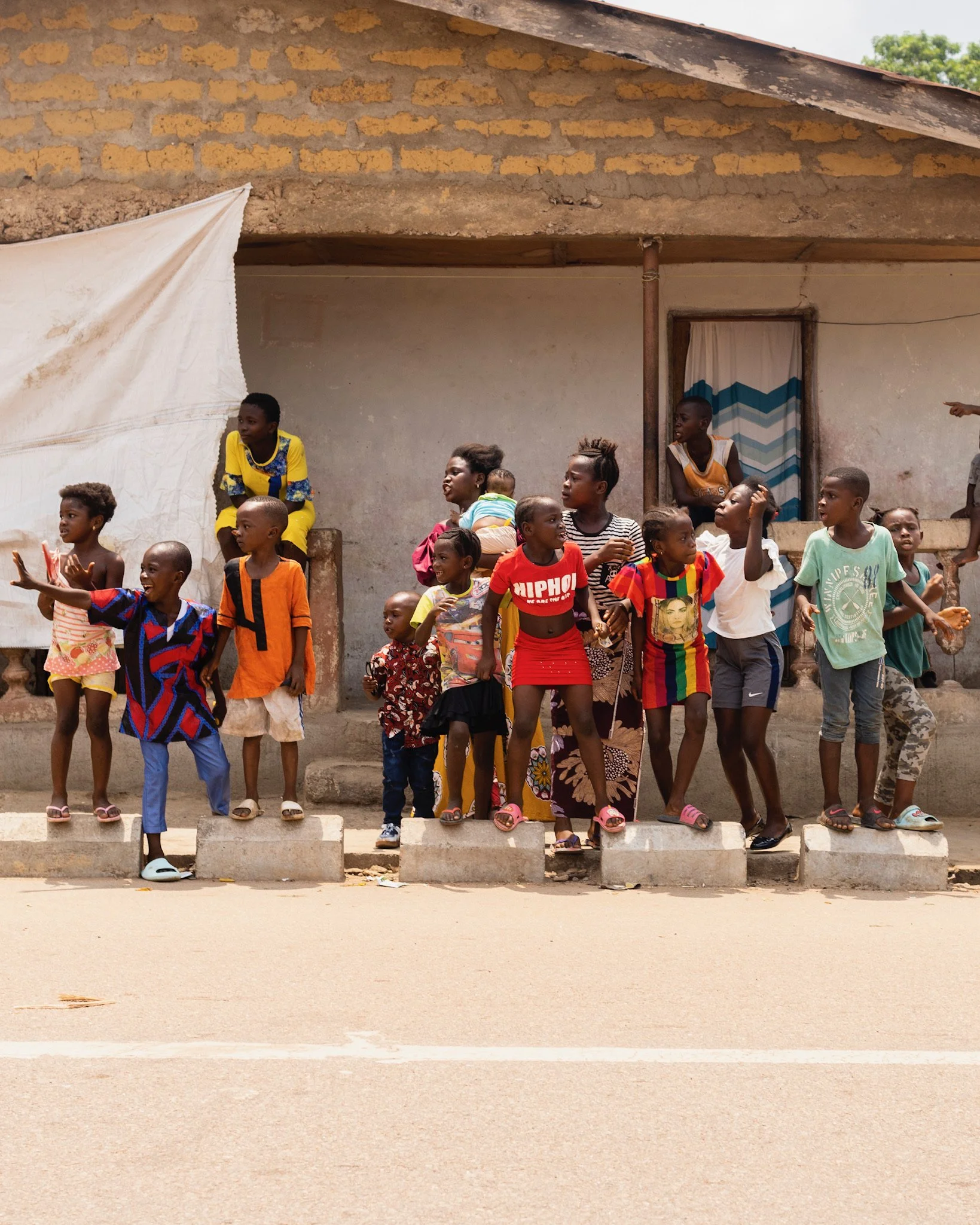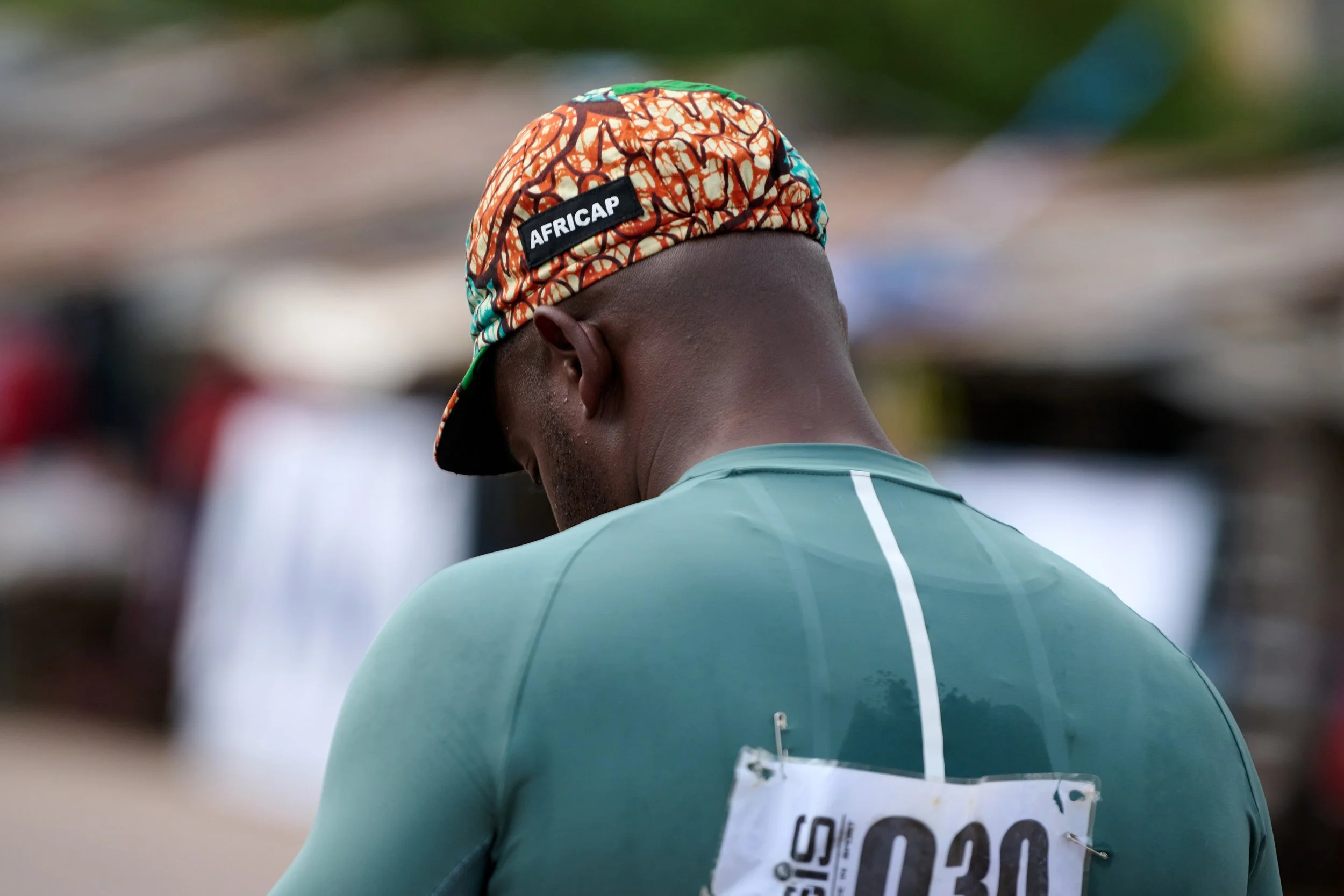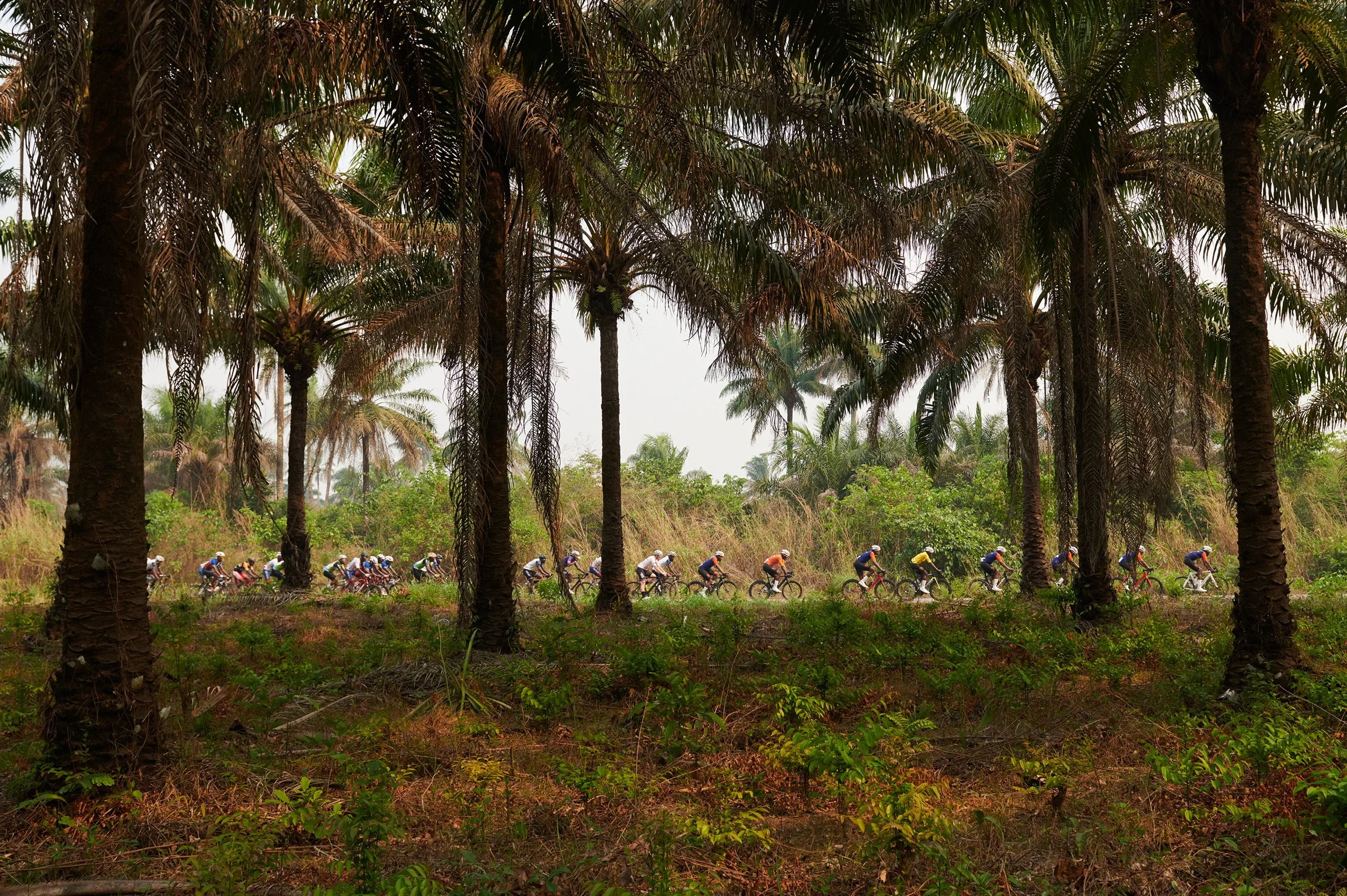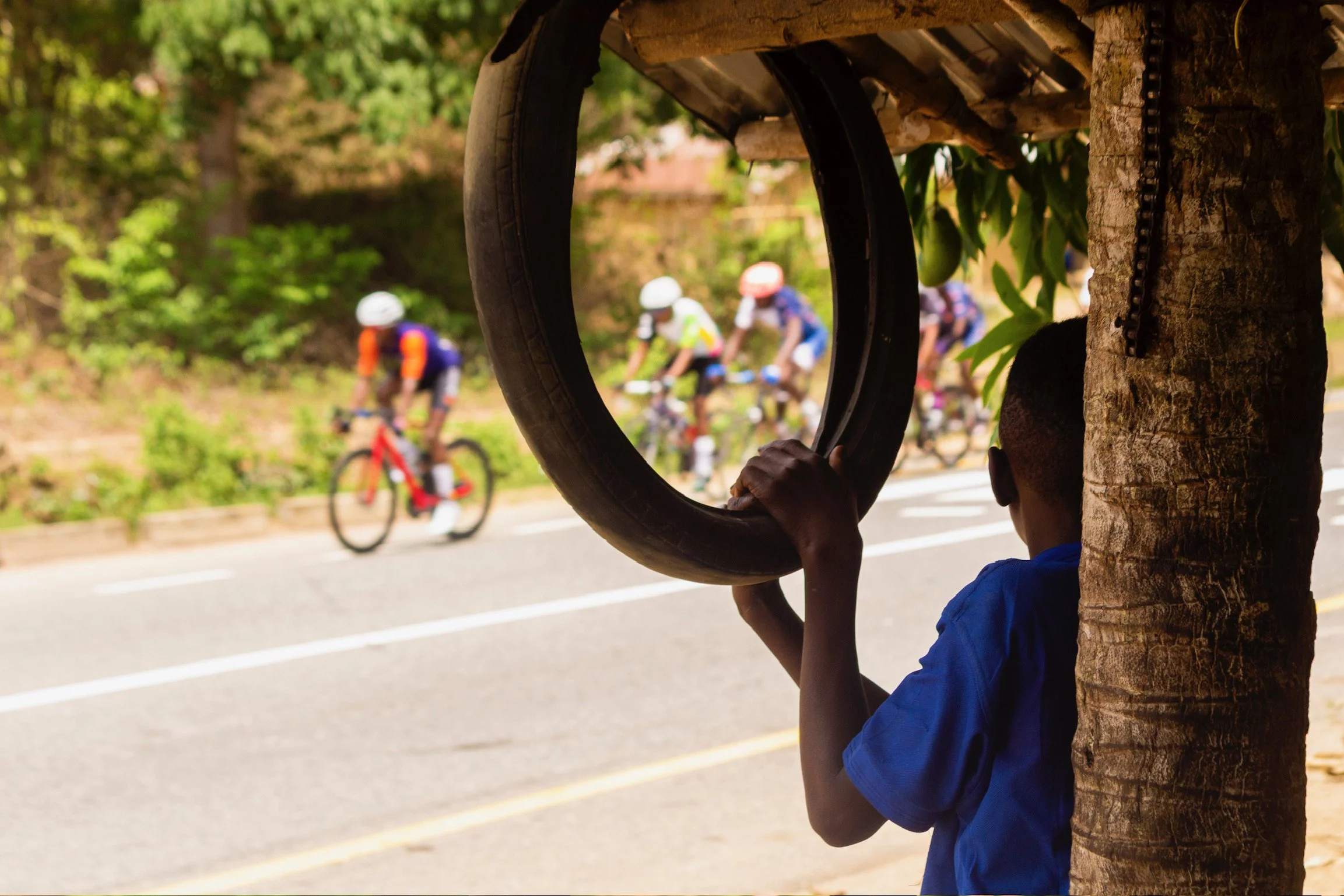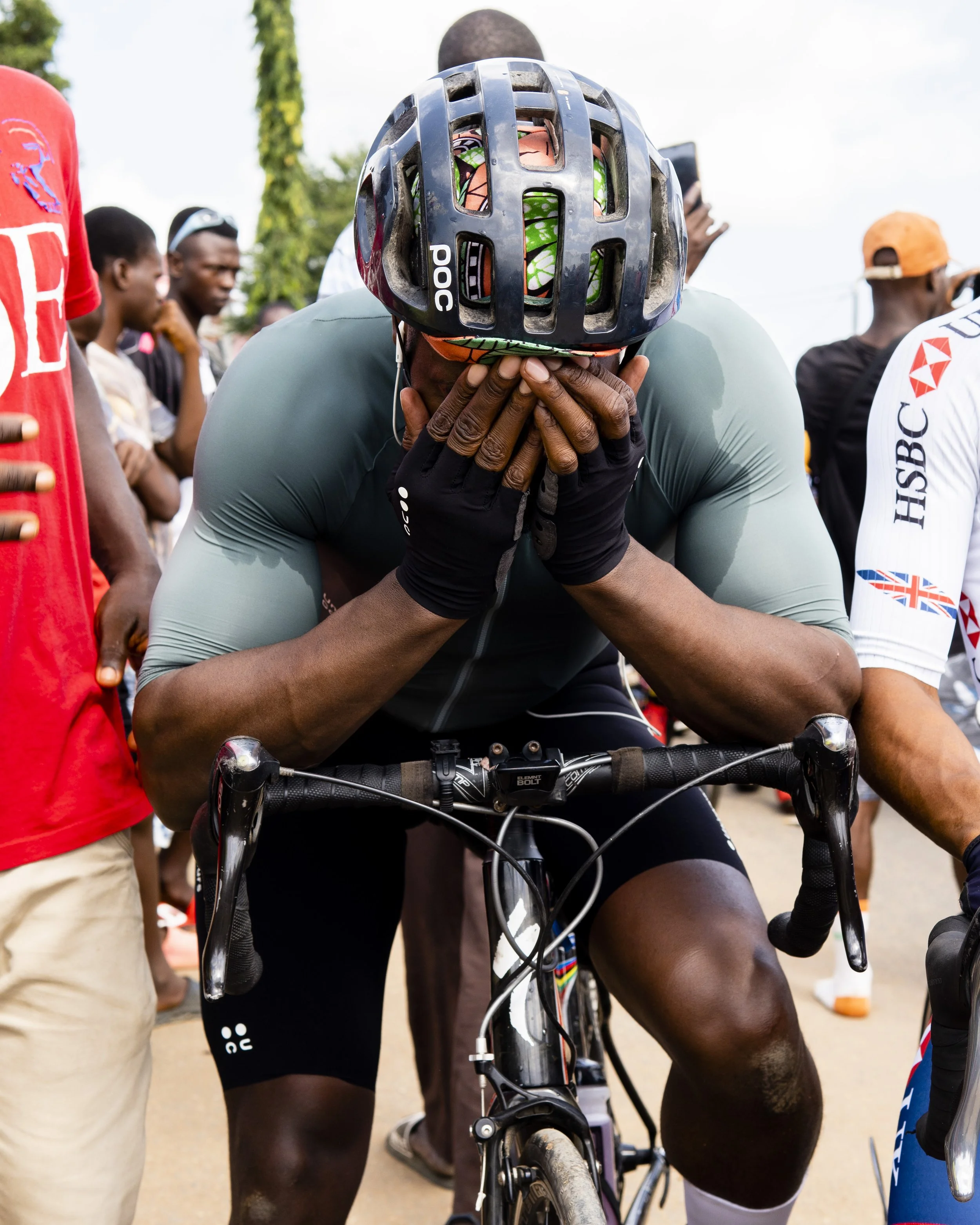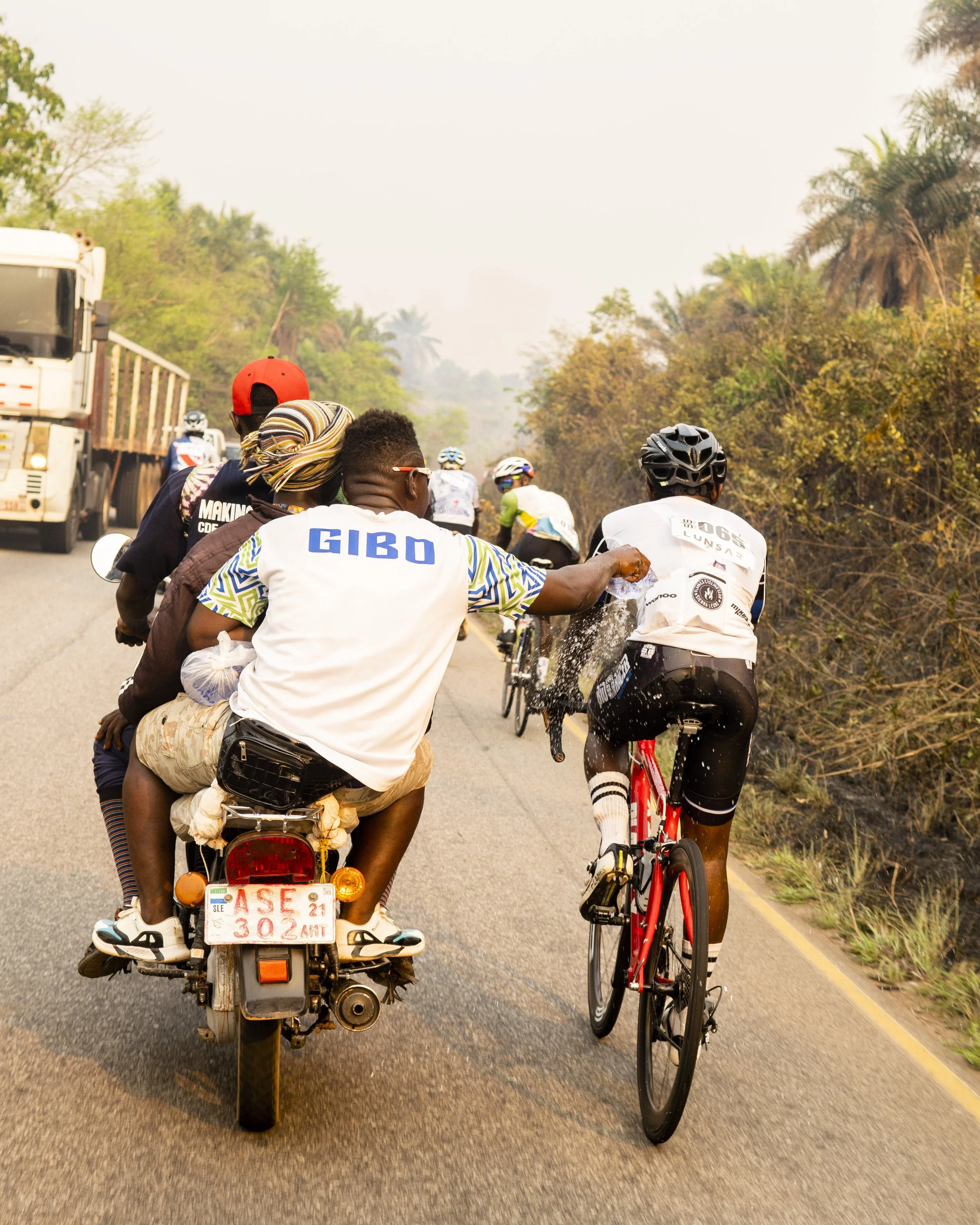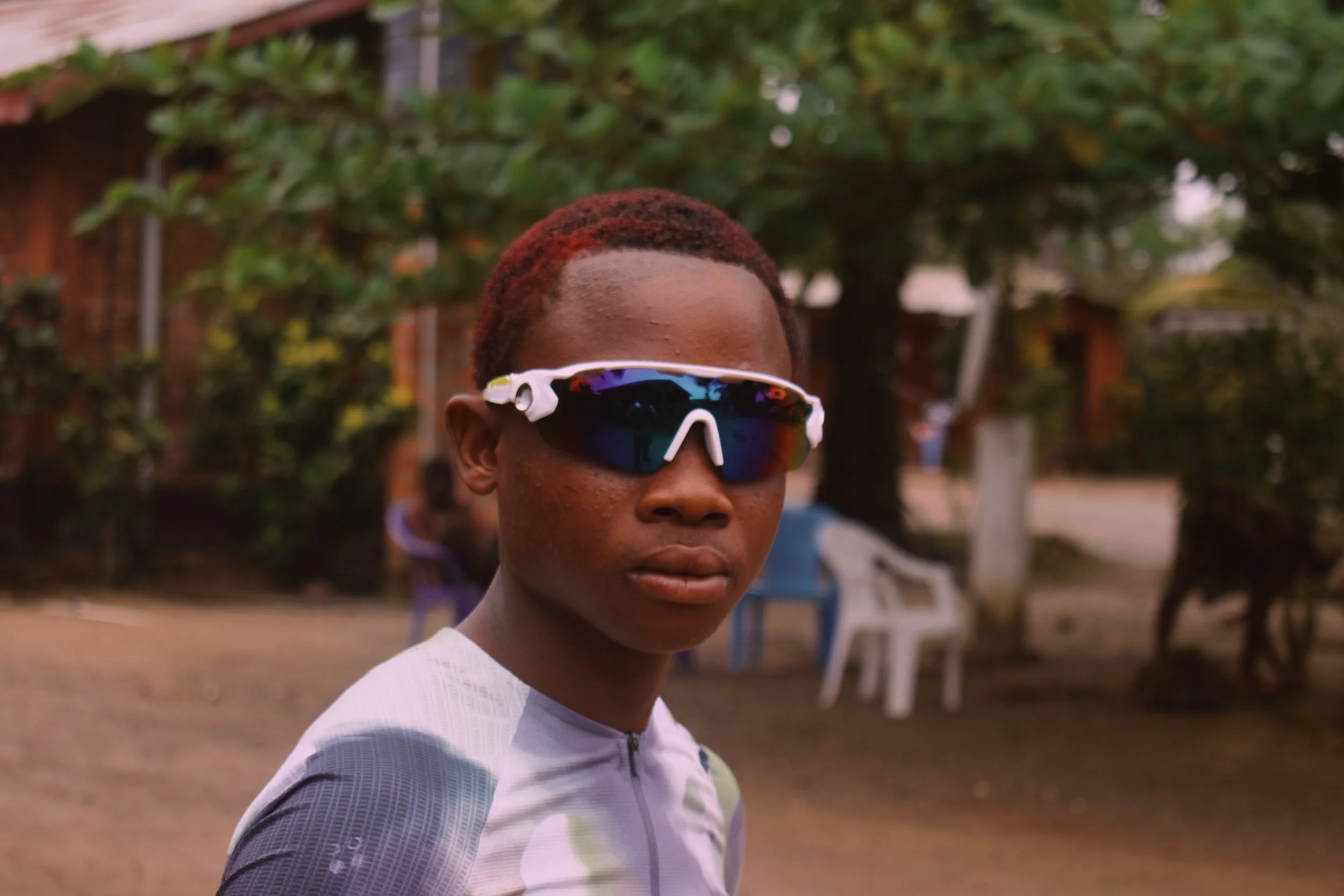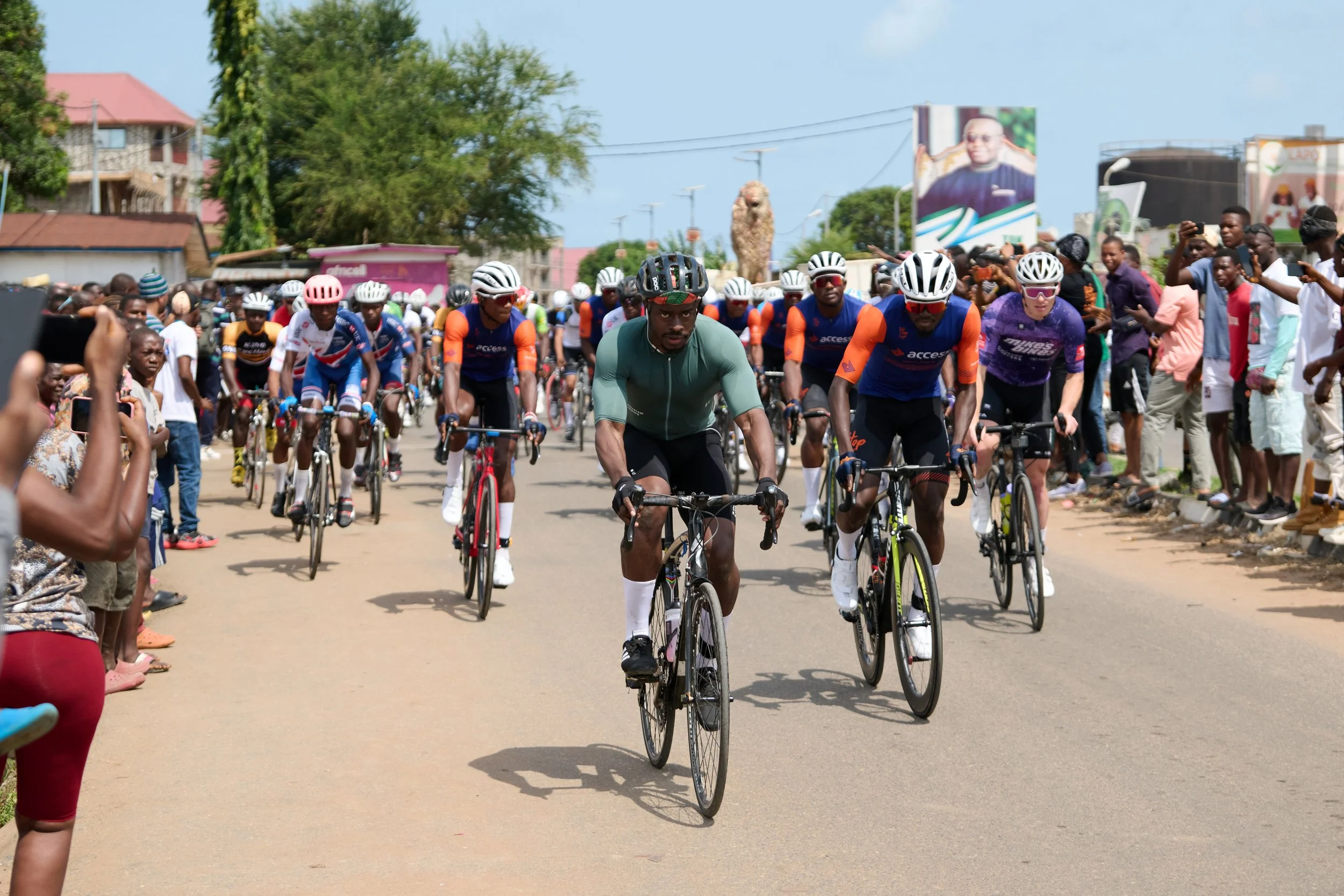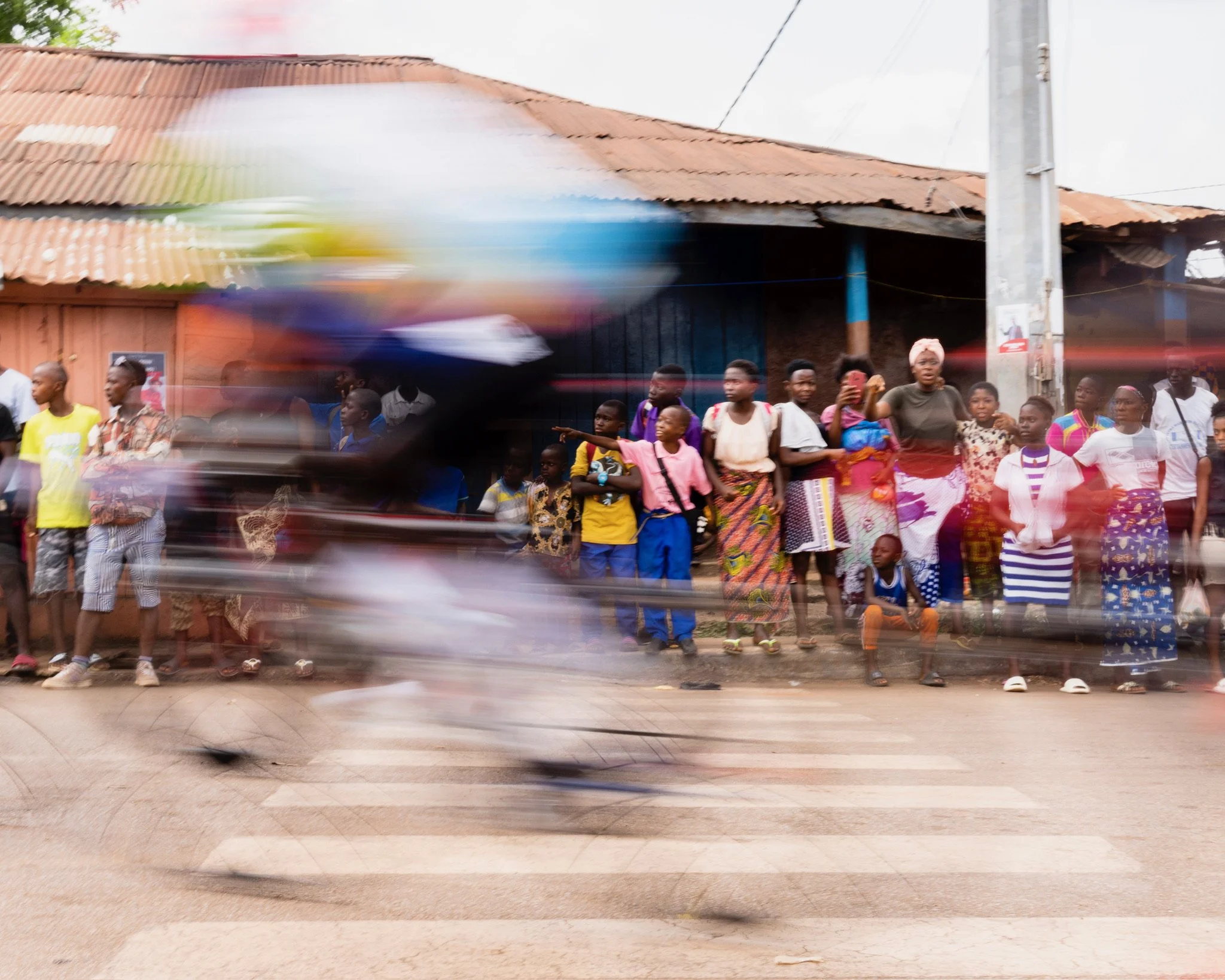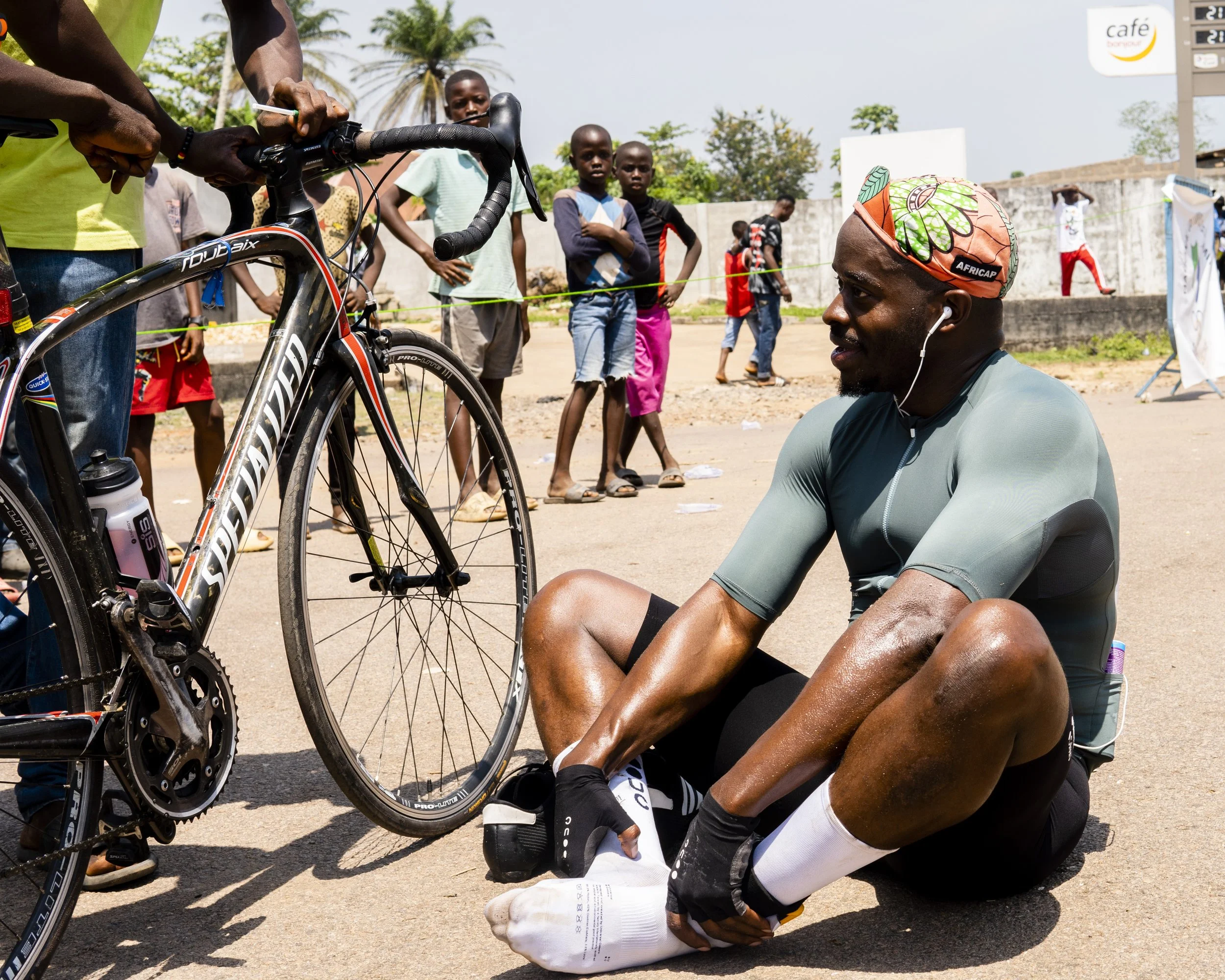Mohammad Sesay - Lapping Lunsar
Time to read 2 min
Cart
Your cart is empty
Time to read 2 min
Mohammad Sesay, also known as ‘Hammer’, goes grassroots at
Sierra Leone’s biggest cycling race.

Back in 2013, bike shop owner Abdul Karim Kamara founded the Tour de Lunsar with the vision to give Sierra Leoneans the opportunity to experience cycling as a sport. Fast forward ten years and the West-African race has grown in size and reputation from a single day showcase to a four-day event, attracting both local and international cyclists who want to make it professionally. It has become known as Sierra Leone’s biggest cycle race.
With men’s, women’s and junior races taking place on semi-closed roads, one person who made it to this year’s startline on April 27th is Mohammad Sesay, or ‘Hammer’. A British raised Sierra Leonean and founder of AFRICAP Apparel, who also works for Medecins sans Frontieres, his love and passion for cycling is apparent:
“Cycling has been my main form of transport wherever I have lived and I have organised and participated in a number of charity rides. As soon as I found out about this race, I knew I wanted to participate. I have never competed in a race before, so to do so for the first time in my home country of Sierra Leone was a very exciting prospect and challenge.”
Hammer formed a team of four to compete in the men’s race, which was split over four stages - the first starting at the airport in Lungi, with each stage ending in Lunsar in the Northern Province. A vibrant community town, Lunsar is also home to Sierra Leone's largest cycling team, the Lunsar Cycling Team, who have brought forward some of the nation’s most talented riders. Unlike the races as we know them in Europe, there are no fancy buses to support the riders. Instead teams creatively adapt cars that have bikes strapped to them and in Hammer’s case a scooter with supplies.
“Before I got there, my objective going into the event was to simply enjoy it. It was my first time watching a cycling event on this scale and I was surprised with how much I enjoyed that”, Hammer explains. “What I also did not expect was that it awakened my competitive side. Once I was in that environment, I felt really energised to do well and give it my all.”
One of the key challenges experienced by the riders in this race is the heat and humidity. With temperatures rising up to 38 degrees, seeking shade before setting off and ensuring to keep hydrated and fuelled is top priority. Having trained in Senegal himself where conditions were much colder, Hammer explains it was a shock to the body: “What I learned is how important it is to have support and I underestimated the importance of fuelling. On the first day I had some issues with my bike computer, then I ran out of water and I thought to myself: am I even going to be able to finish? My energy levels were totally out. Saved by my guardian angel James Sawyer on the support scooter to bring water and supplies, I was able to make it through again.”
Looking back at the event, Hammer shares that the community spirit and level of organisation really stuck with him. “The environment, the bikes, the way the community embraces cyclists, the passion, the music; it is all really impressive. The teams that were participating were also really close together, more like a family. For me, I hope it inspires more people to enter the Tour de Lunsar, try and challenge themselves for adventure and give it a go. As for the organisers, they have created something truly special and something that the community can now look forward to on an annual basis.”
We would like to thank Hammer for sharing his experience with us. If you are interested in connecting with him and finding out more about the Tour de Lunsar beyond this Story, you can connect via the link below.
Select images by @mattgrayson_photo and @kanuvisuals
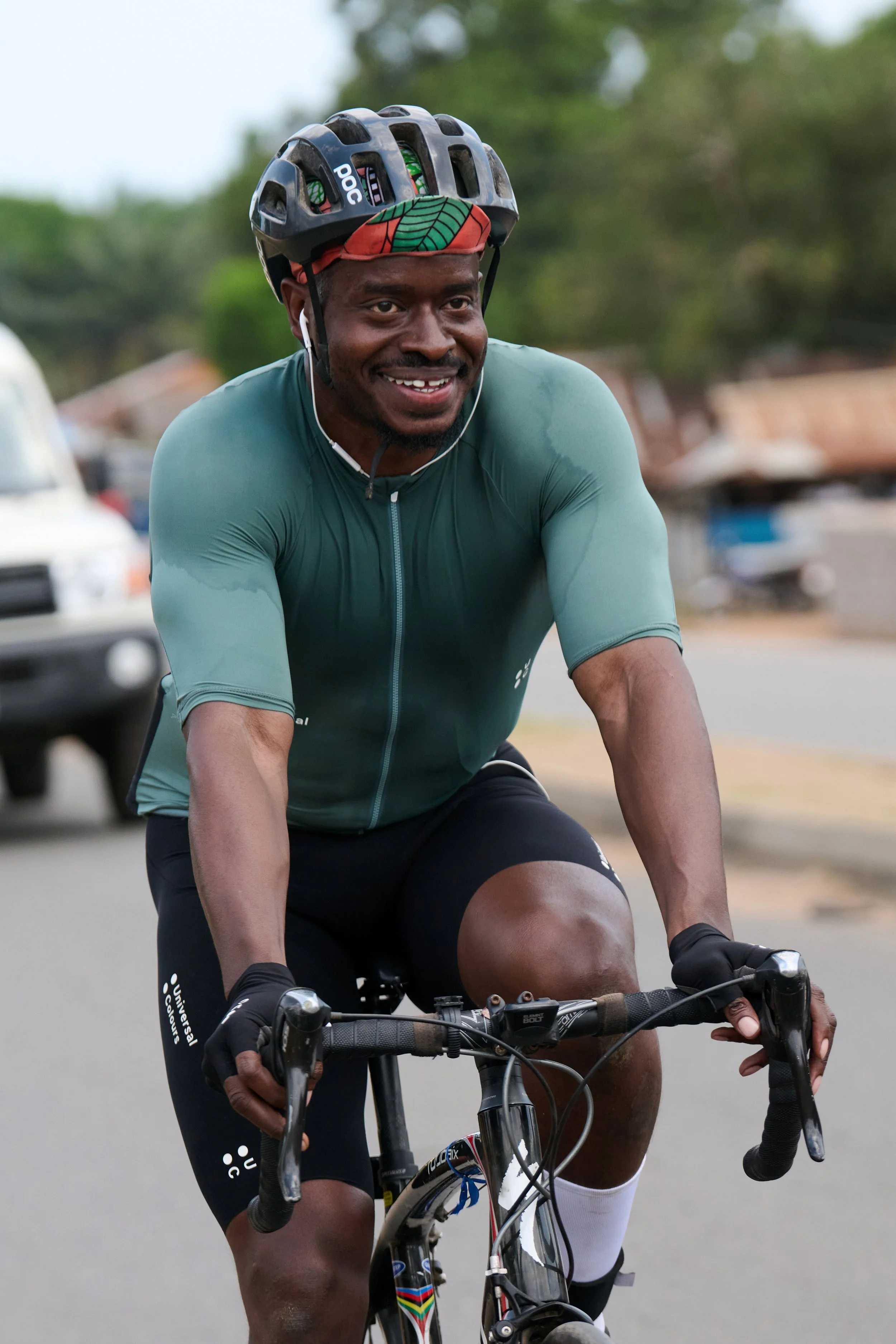
@mr.sesay
